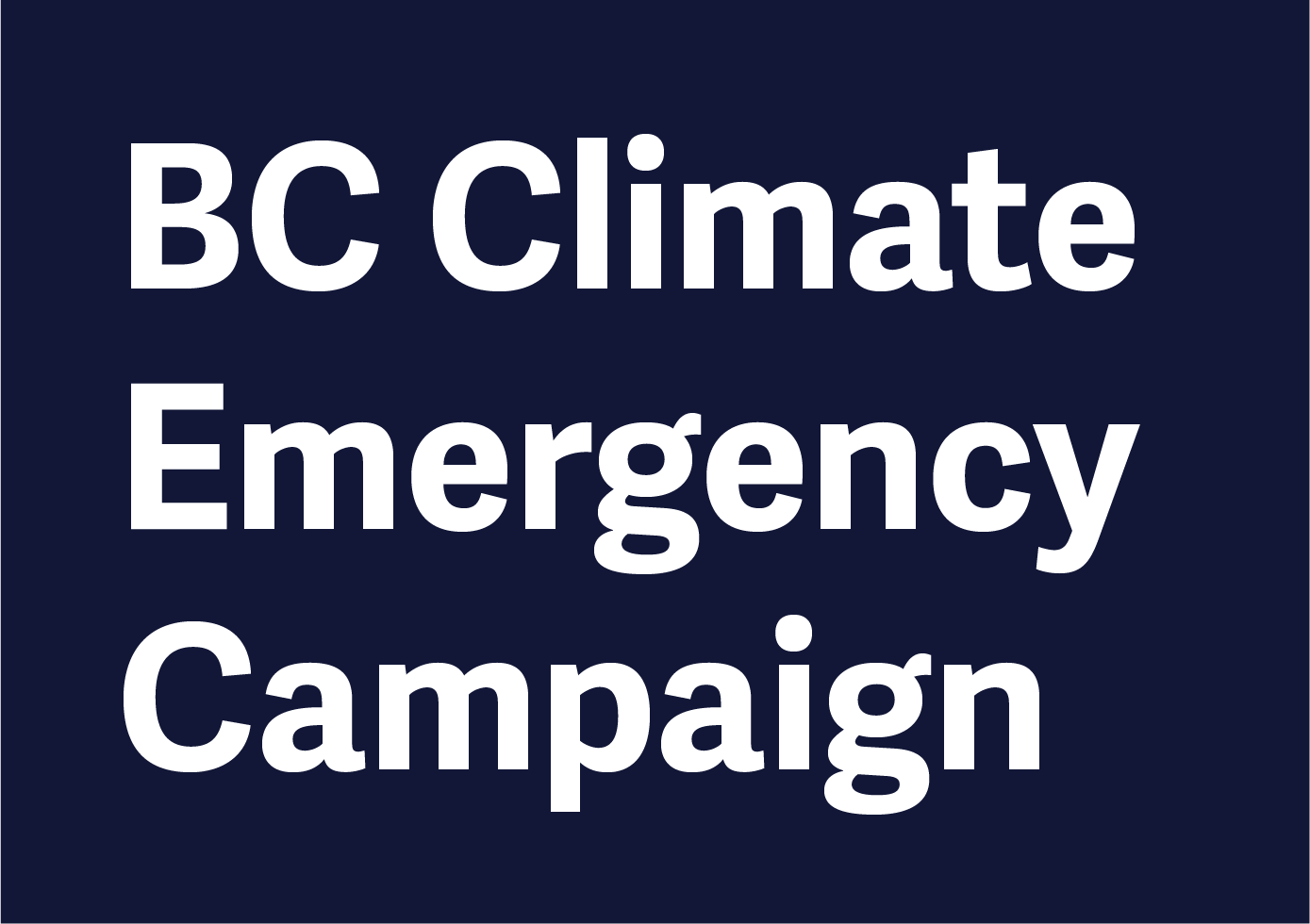CleanBC Review Process
The BC government is seeking input on the effectiveness of the programs and policies in BC’s climate plan, CleanBC, including suggestions for action-oriented ideas that can put the province on a durable path toward net zero emissions by 2050.
OPTION 1: Survey (Deadline August 1, 2025)
OPTION 2: Written submissions (max 2500 words). Use the following to guide your submissions. (Deadline July 18, 2025)
With respect to CleanBC’s policies—inclusive of legislation, regulation and government direction—that directly reduces or enables emission reductions:
What is working well?
What are the challenges and/or areas for improvement?
What gaps exist, and how could they best be filled?
With respect to CleanBC’s programs and other government spending that directly reduces or enables emission reductions:
What is working well?
What are the challenges and/or areas for improvement?
What gaps exist, and how could they best be filled?
Are there different ways to fund CleanBC programs beyond government grants, rebates, and incentives? Are there examples from other jurisdictions that could be applied in B.C.?
With respect to the role of B.C.'s electricity and gas utilities in CleanBC and the B.C. Utilities Commission as their regulator:
What is working well?
What are the challenges and/or areas for improvement?
What gaps exist, and how could they best be filled?
Are there enabling conditions (e.g. workforce, supply chains, permitting, capital, cost effectiveness/affordability) that are currently insufficient to support the adoption of emissions-reducing technologies and services encouraged or required by CleanBC? If so, please describe the challenge and provide suggestions for how it can be addressed.
Are there other barriers that have hindered the effectiveness of CleanBC policies and programs?
How could CleanBC’s policies and programs be better aligned or integrated with other provincial priorities, including (but not limited to) improving affordability, enhancing economic competitiveness, protecting health, and ensuring energy security?
Are there other innovative and effective approaches—including those that account for or align/integrate with other priorities—from other jurisdictions that B.C. should consider adopting?
With regards to B.C.’s approach to establishing targets (2025, 2030, 2040 and 2050; and sectoral targets), public reporting and accountability:
What is working well?
What are the challenges and/or areas for improvement?
What gaps exist, and how could they best be filled?
Are there other potential indicators of progress (e.g. investment, behavioural change, energy production and use, deployment of key technologies etc.) that should be considered for tracking and reporting?

